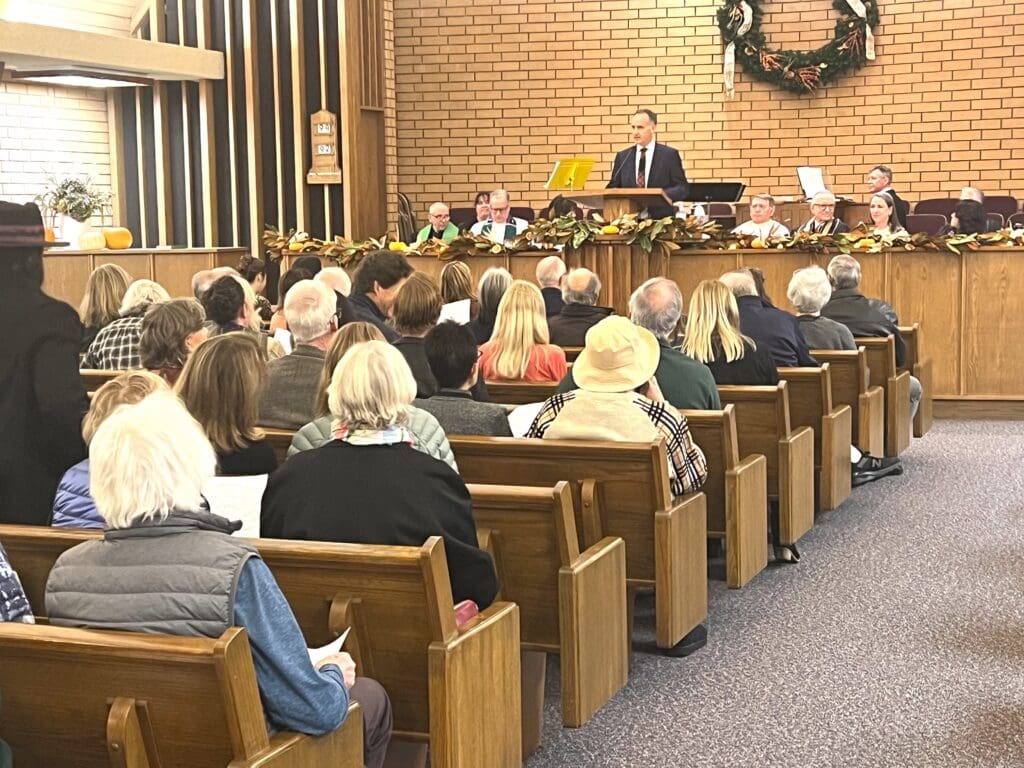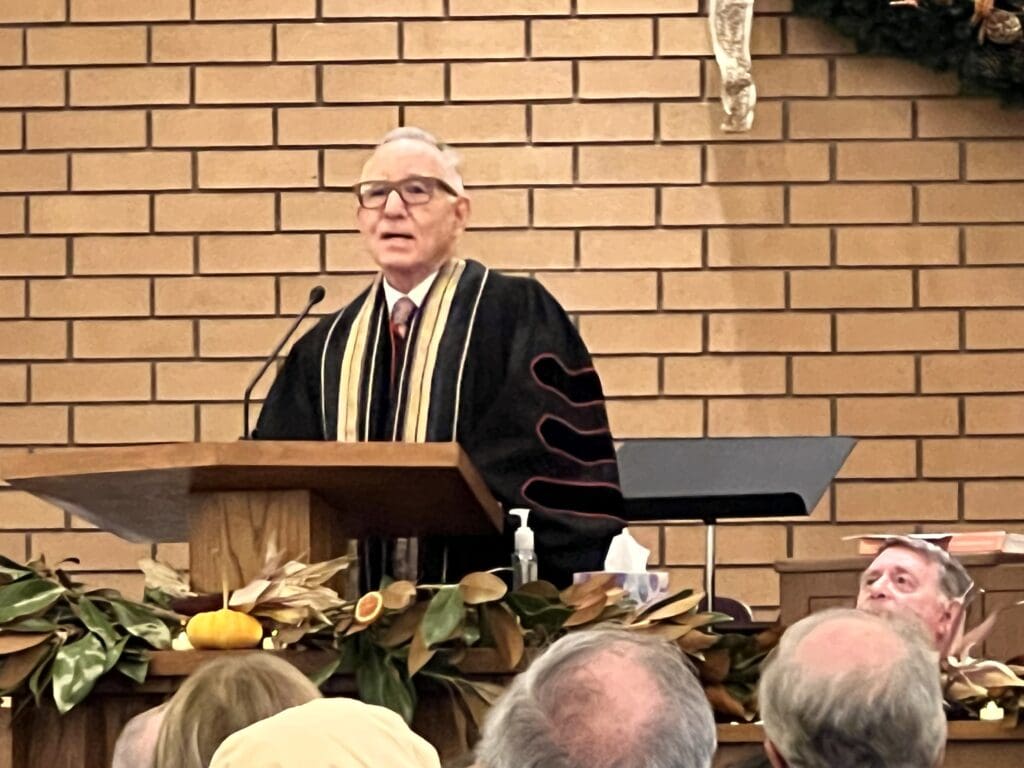
Members of the Palisades clergy sat behind President Trevor Brazier, who welcomed everyone to the Church of the Latter Day Saints for the Interfaith Service.
In a world where there seems to be one ugly incident after another; and people are nasty to one another and at war; at times it all seems hopeless.
But, the Pacific Palisades clergy in their annual interfaith Thanksgiving service showed friendship and collaboration. Through their actions they radiated optimism to all attending.
Although the service is held annually, the clergy in the Pacific Palisades meet monthly and as Reverend Dr. Grace Park (Palisades Presbyterian Church) said, “We share our hearts and lives with one another, and we stand united as friends. Our commitment is to foster respect and understanding.”
The almost 200 people who gathered at the Church of Jesus Christ of Latter-Day Saints for the November 20 service, were welcomed by President Trevor Brazier.
The service rotates between the houses of worship in Pacific Palisades and Brazier said, “We’re thrilled to open the doors to the community tonight.” He said in preparation, they cleaned the building, “the last time might have been done during the Carter administration.”
He spoke about his given job, which was to clean glass doors by the entrance. As he worked, he thought, “No one is going to notice this.
“I was right, you all walked callously by,” he said to laughter.
Brazier used his task as an example, though, “There are people who do small things for our community that goes unnoticed,” he said, and invited people to thank those people or maybe also help, even if it’s in a small way.
The title of the service was “Sorrow, Solidarity and Hope.”
Speaking on Sorrow was Reverend Bruce Freeman (Parish of St. Matthews), who said that after the attack on Israel, the clergy met and “There were no words to describe our emotions. In a time of grief, there are no words to speak. We prayed together and tried to comfort one another.”
He led those assembled in a prayer that was written in the year 400.
Reverend Wayne Walters (Methodist Church) said he reads the New York Times every day and “by the time I stop I’m depressed.”
In addition to the Israeli/Hammas, he reads there are at least 12 other countries where people are at war: there is racism: there are 793 million people starving around the world: there are people with incurable diseases.
Although each individual might not be able to stop one of those “sorrowful” situations, individuals do have a choice. “We can be kind and we can take care of each other,” Walters said.
Speaking on Solidarity, Reverend Matt Hardin (Palisades Presbyterian) asked, “Is solidarity even possible – given the current derisiveness?”
He quoted an astrophysicist: “Solidarity is nothing less than a scientific fact. We are connected to one another.”
Harden said that solidarity is about training our hearts, minds and souls about what is already there.
“God created solidarity not uniformity,” he said. “Solidarity work is soul work.”
Also speaking on Solidarity was Monsignor Liam Kidney (Corpus Christi) who said this was the 26th year of the service. “We come from different theologies, denominations and doctrines,” he said. “There is something among all of us, which is coming from the same place: root spirituality.
“Somewhere within us, we have a need to give thanks to God that brings us all together,” Kidney said. “What brings us together is the reality of fear, the reality of suffering, and being totally dependent.
“What’s common in all of us is our vulnerability,” Kidney said and quoted Mother Teresa “Not all of us can do great things, but we can do small things with great love.”
On the theme of Hope, Reverends KC Roberston and Christine Purcell (St. Matthews) spoke, noting that just like the rainbow after the rain, “joy will reveal itself after the sorrow.”
Rabbi Amy Bernstein was the last clergy to speak and said that Israel has always understood that war is the biggest threat to the country, but “The people don’t want to fight. They want lives, they want good things for their children.”
She also explained that Shalom does not mean peace, but rather “to be whole. It is the radical wholeness of our unique destiny and that’s what we pray for all the time.”
Bernstein said that although the theme of the service was “Sorrow, Solidarity and Hope,” “really loving one another is our theme.”
The service concluded with a duet “Prayer for Peace,” sung by Bernstein and Didi Carr Reuben, accompanied on the piano by Rabbi Steven Reuben.
Rabbi Reuben closed the ceremony. “Memory itself is sacred,” he said. “The world breaks everyone and afterwards the strong live in broken places.
“The spark of the divine shines from every human’s face,” Reuben said. “There is pain in the world, pain in the face of the innocent who have died.”
But, “when we look into each other’s eyes, we’re reaching out to other’s souls,” he said and led the final prayer, the Kaddish.
Normally, the Self Realization Fellowship Lake Shrine also participates in the service, but Brother Satyananda was ill.
A collection was taken, and the money will go to benefit the unhoused in this community.

